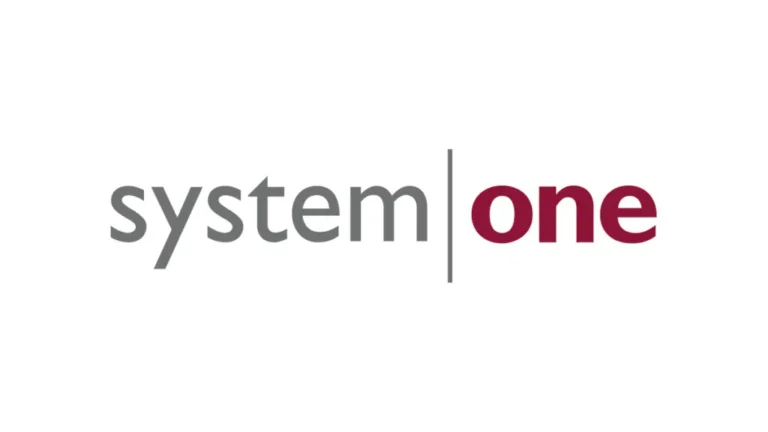Navigating Career Growth in the Life Sciences Industry

Career Advancement in Life Sciences: Insights & Guidance
The life sciences industry offers diverse career opportunities and is crucial in advancing healthcare and improving lives. This article will provide insights and guidance on how life science professionals can advance their careers within this dynamic industry. We'll cover:
- Identifying your career goals
- Mapping out your career path
- Acquiring relevant skills
- Building professional connections
- The benefits of working with a recruiter
What is the Life Sciences Industry?
The life sciences industry refers to a broad sector encompassing various scientific fields that focus on the study of living organisms and their applications in healthcare, medicine, agriculture, and environmental sciences. It involves research, development, manufacturing, and commercialization of products and technologies to improve human health, enhance the quality of life, and address environmental challenges.
The life sciences industry is interdisciplinary in nature, drawing knowledge and expertise from fields such as biology, chemistry, genetics, pharmacology, biotechnology, medical devices, and more. It plays a vital role in advancing healthcare through the discovery and development of innovative therapies, diagnostics, and medical devices. The industry also contributes to agricultural advancements, including genetically modified crops and agricultural biotechnology, to increase crop yield and enhance food security.
Brianna Wronko, the CEO of diagnostics startup Group K Diagnostics, sums up life sciences nicely."The most significant clue in the life sciences moniker is in its first word. Life sciences is anything that relates to a living being — animal or human — and requires something being taken from or given to that being; this could include technologies in the biotech, AI, and healthcare spaces, but not all technologies in those spaces qualify. For instance, a diagnostic company that tests blood would qualify as life sciences, but an app that measures heart rates would not — that's simply a health technology."
Identifying Your Career Goals
Whether you are a seasoned pro or just landed your first job in the field of life sciences, it is important to get a handle on your short and long-term career goals. Of course, your goals don't have to be set in stone, but they should give you an idea of where to focus your efforts.
Good goals are:
- Attainable
- Measurable
- Able to be broken into smaller goals
- Time-sensitive
You don't have to hit all of your goals, but you should be able to analyze why you weren't successful and use that information to do better the next time.
In creating your goals, assessing your skills, interests, and long-term career aspirations is essential. Researching different job roles within the life sciences industry is crucial for understanding their requirements and potential growth opportunities. Platforms like LinkedIn, job boards, and networking with industry peers can provide valuable insights into different career paths.
Mapping Out Your Career Path
Career progression in the life sciences industry often starts with entry-level positions that require foundational knowledge and skills. For example, as a Clinical Research Associate (CRA), one can gain experience conducting clinical trials and collecting data. Mid-level and senior-level roles bring additional responsibilities and may involve managing teams or leading projects.
Speaking with peers and seeking guidance from mentors is integral to creating a plan for your career path. During this process, you should pay close attention to the skills needed at each level of your career and perform self-assessment to gauge how prepared you are to tackle new challenges.
Check out the article A Simple Way to Map Out Your Career Ambitions from the Harvard Business Review for further reading on how you can level up faster.
Acquiring Relevant Skills
Identifying the essential skills and qualifications for your desired career path is crucial.
Continuous learning is essential in the always-evolving life sciences industry. By pursuing additional certifications, taking relevant classes, and seeking professional development opportunities, you can expand your knowledge base, stay on top of new regulations, and demonstrate your commitment to professional growth.
Building Professional Connections
Networking is a valuable tool for career growth in the life sciences industry. Building connections through professional associations, industry conferences, and online communities can provide opportunities for mentorship, collaboration, and job referrals. Engaging with like-minded professionals and thought leaders can broaden your knowledge, expand your professional network, and open doors to new possibilities.
In addition to professional associations, industry conferences, and online communities, leveraging social media platforms can further enhance your networking opportunities. For example, LinkedIn groups focused on life sciences provide virtual spaces where professionals can connect, share insights, and engage in industry-related discussions.
Participating in relevant conversations, sharing valuable content, and actively networking with peers and industry leaders can help expand your reach and visibility within the life sciences community.
Pro tip: You can follow accounts like Joulé and System One to find out about industry-specific events and webinars where you'll be able to network with experts and stay updated on the latest trends and advancements in the field.
The Benefits of Working with a Recruiter
If you are ready to take the next step in your career, regardless if it's stepping up on the corporate ladder, a tactical lateral move to another organization, or you want to find your first job in the life sciences industry, working with a recruiter, like System One, that specializes in the life sciences industry can offer several advantages.
- Recruiters have in-depth industry knowledge and can match you with suitable job opportunities that align with your skills and experience.
- They provide access to hidden job opportunities, insider information, and valuable insights into the job market.
- Recruiters also offer guidance and support throughout the job search and interview process, leveraging their industry connections and providing personalized assistance to enhance your career advancement journey.
And that's just the tip of the iceberg. Check out our article How Recruiters Can Help in Your Job Search to learn how recruiters can help you tailor your resume, get the salary you deserve, and more.
Seizing Career Growth Opportunities
An effective strategy for accelerating your career growth is to actively seek out new challenges and opportunities for professional development. Taking initiative, demonstrating leadership skills, and seeking advancement within your organization can lead to increased responsibilities and career advancement. You can position yourself for success in the life sciences industry by staying adaptable and open to change, understanding the industry landscape, setting clear career goals, acquiring relevant skills, and building professional connections.
Need help finding your next opportunity? Make sure to follow System One on LinkedIn for breaking job alerts and more insights on how to advance your career.
Looking for business solutions?
Explore System One

